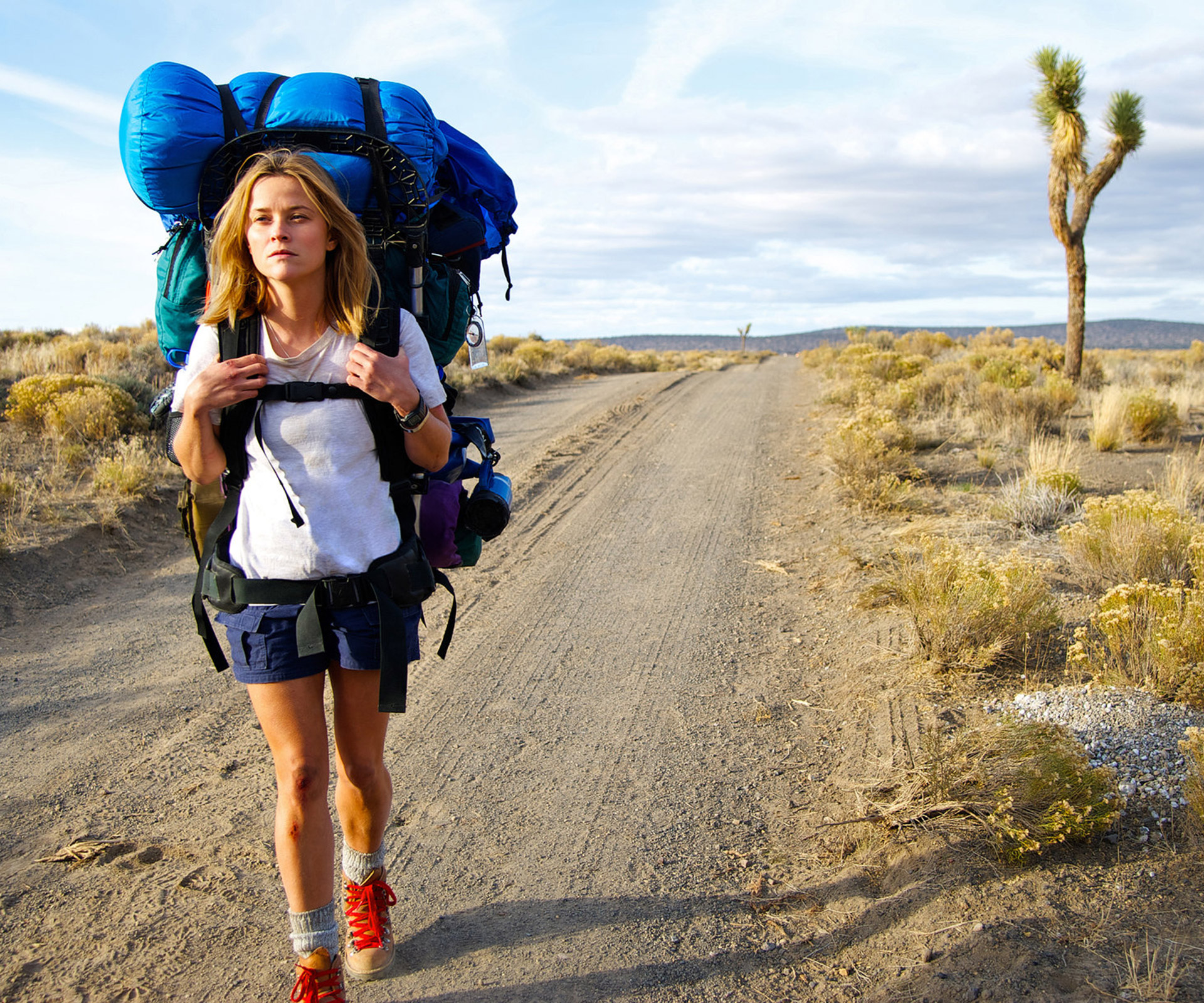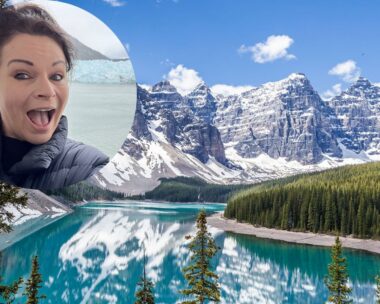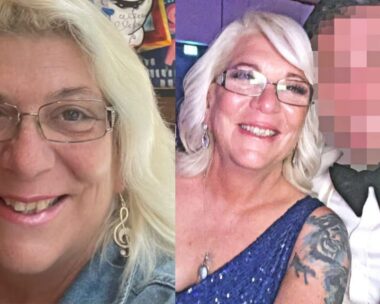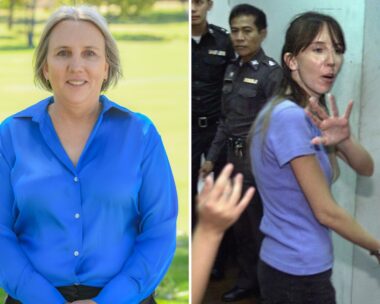Sitting in front of the giant waterfall , I let the sound of rushing water and chirping birds wash over me. I was all alone in the forest with only animals for company .
Life didn’t get much better than this…
“Miss! Miss!” the voices cried out of nowhere.
Snapping suddenly out of my daydream, I looked around the classroom at my students and remembered that my travelling days were over.
After two years of adventuring through India and South-East Asia with my boyfriend, Peter, we’d returned to New Zealand and I’d started a 12-month job as a special needs teacher.
While working with the kids was rewarding, I couldn’t ignore the feeling that this life wasn’t for me.
As soon as the weekends rolled around, Peter and I escaped the rat race.
There was nothing better than hiking through the wilderness and pitching a tent.

Washing off in the river.
“Why don’t we live like this all the time?” I suggested.
Peter nodded in agreement.
He was 30 years older than me, but we both shared the same sense of adventure.
So once my year of teaching was over and we’d saved enough money, I walked into my boss’s office to hand in my resignation and make our dream come true.
“I want to live in the wilderness,” I explained.
My boss’s face filled with worry. “Winter’s nearly here,” she said. “You could freeze!”
But nothing was going to change our minds.
A few days later, we set off.
Armed with bags filled with food, including flour, lentils, beans and rice, we climbed into our friend Mouse’s car.
He drove us four hours to South Marlborough where we began our journey into a valley.
As the sound of Mouse driving away faded out and the dense forest drew us in deeper, I couldn’t wipe the smile off my face.
Eventually, we came across a hut where we intended to sleep. Opening the wooden door, Peter and I stared in shock at what was inside.
“It’s full of mice!” I said, realising there was no way it was liveable.
But maybe it was meant to be. After all, the reason we were doing this was to be part of nature.

I love living wild and free.
Settling down in the wilderness
Instead, we put up our tent by a river. Perfect!
Once that was done, I realised there was nothing else for us to do.
“I’m so used to being busy,” I told Peter.
“Just relax,” he advised.
We only had one book, which we passed back and forth, and I wrote in my diary a lot. We had no phone, no camera, no computer.
Instead of trawling Facebook, we’d spend hours playing chess.
As night fell, we’d cuddle up and look to the sky.
As winter’s grip grew stronger and snow and ice transformed our new home into a white wilderness, Peter grew concerned.
“It’s too cold!” he said, shivering in his heavy woollen clothing.
“Think of it as a challenge,” I told him.
We’d wait for the brief minutes when the weather was tolerable and we could dart outside to bathe in the river.
After running a bar of soap over our bodies, we’d retreat to the tent and sleep up to 14 hours a day!
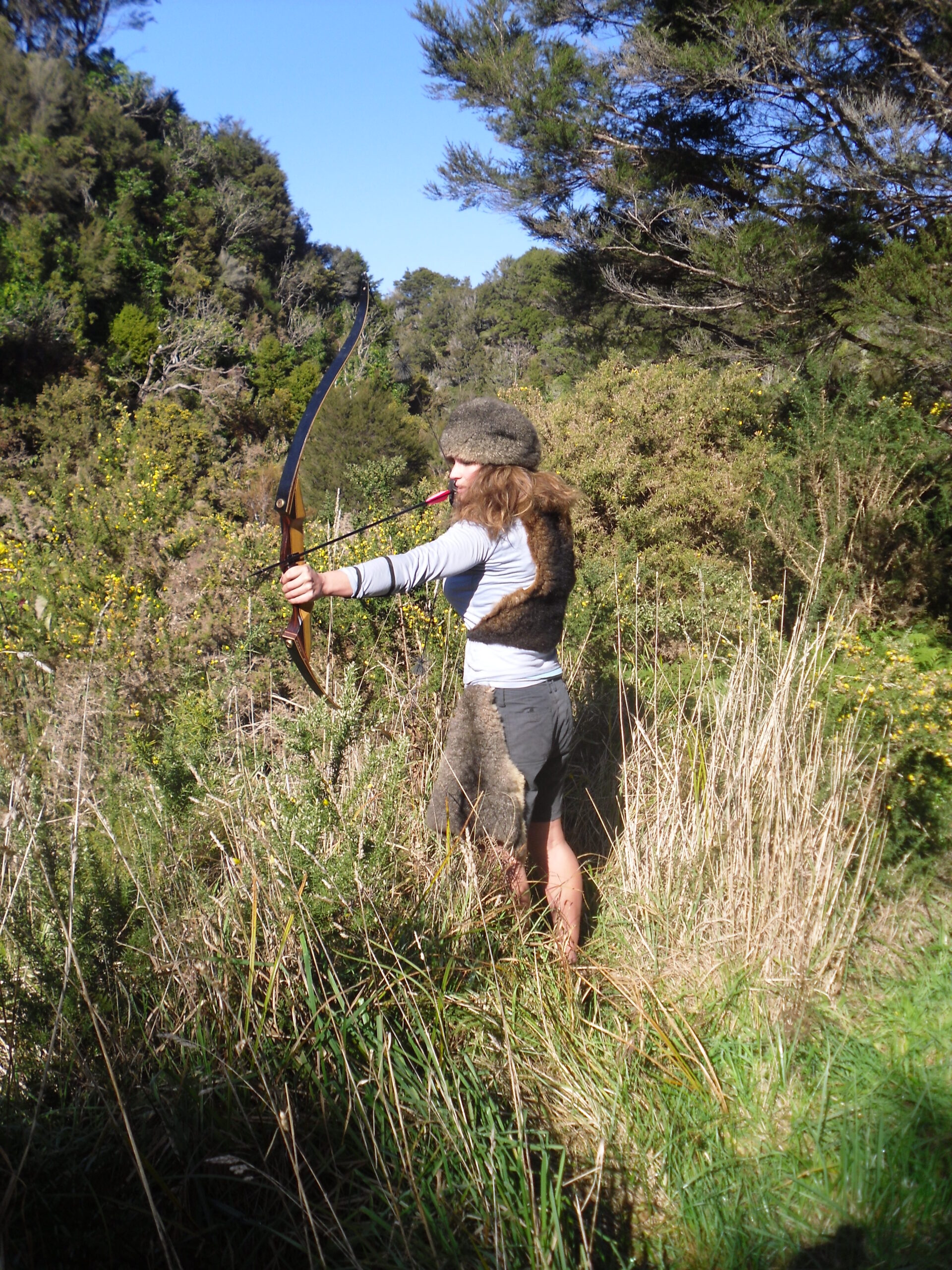
I learnt how to hunt for food.
The only time things ever got scary was one day when we were walking, I climbed over a log and stepped in a wasp’s nest. The angry insects flared up, rushing after Peter.
“I’ve been stung on the throat!” he cried.
Fear gripped me. If he suffered an allergic reaction, the only way I could save him would be by cutting a hole in his windpipe so he could breathe.
Thankfully, after some water and rest, Peter was okay, but our encounter made me realise how truly isolated we were.
For food we baked our own bread using the ingredients we’d brought with us, picked berries and mushrooms or killed rabbits and goats to cook.
After three months, it was time to head to the closest town to restock our supplies and catch up with friends and family on the phone.
The feeling of our bloated tummies filled with all the food soon reminded us of the reason we’d left in the first place.
We wanted to live simply.
The only money we had was from the jobs we’d left behind. But I was confident we could think of other ways to make our savings stretch.
Standing outside the shops, I cleared my throat.
“You fill up my senses like a night in a forest,” I began, singing John Denver’s Annie’s Song.
I busked as often as I could before we left, and people tossed coins, which we used to buy provisions.
“How long are you going to live like this?” friends asked.
“As long as we can,” I replied.
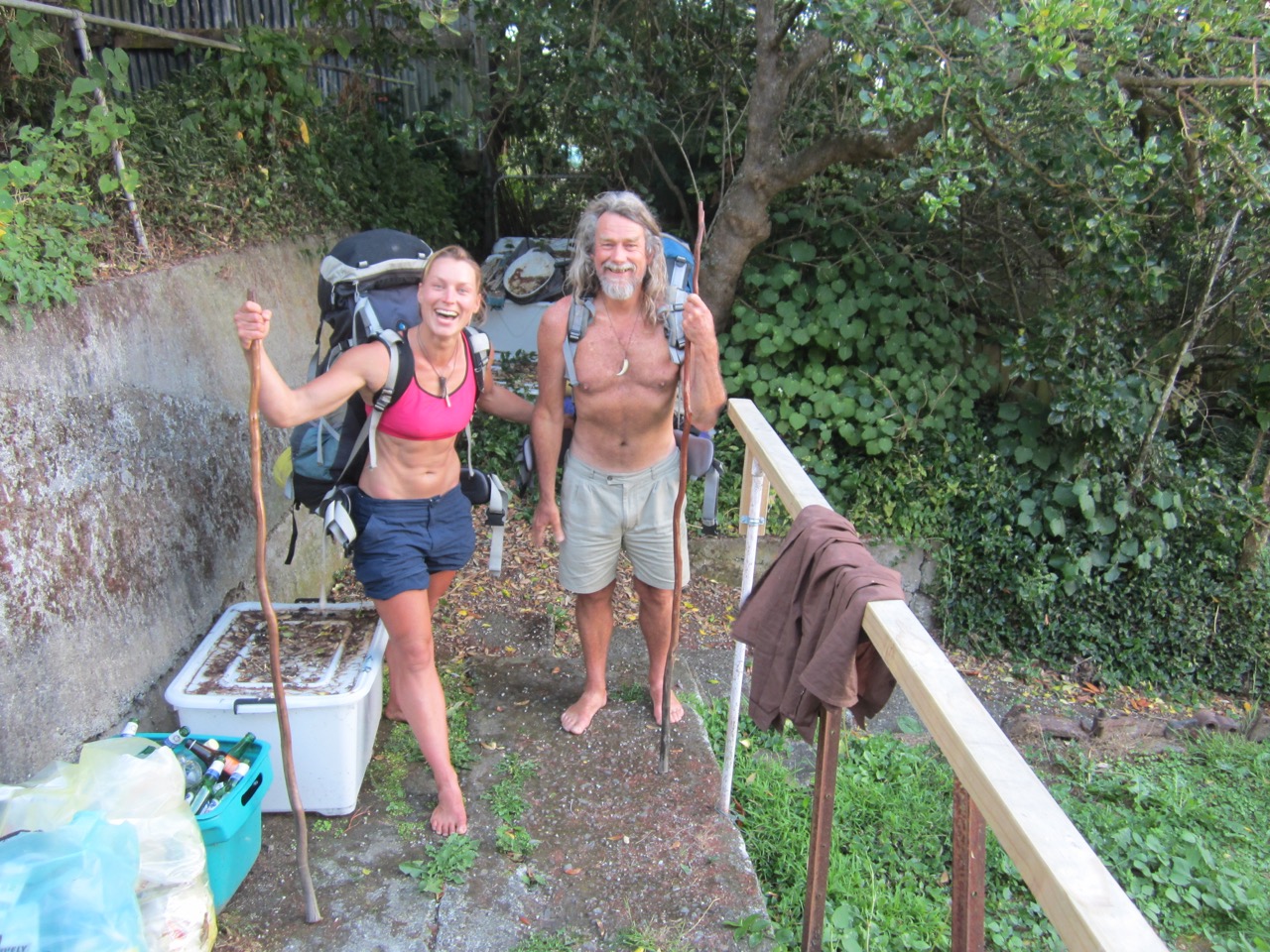
Me and Peter finishing a 300km walk on Te Araroa.
For the past six years, Peter and I have lived in the wild, spending 95 per cent of the year in isolation.
We’ve learnt how to hunt with bows and arrows so our trips to town have become less frequent. I can now cook a great wild goat curry, too!
Many people have no idea how we do it, so I decided to write a book sharing my story. Giving up technology and all the mod cons is a lot easier than you think. And, I believe, it makes for a healthier life.
Just look at Peter. Now 63, he’s still fit as a fiddle. Fresh air will work wonders!
“I’ve got another 10 years of living nomadically,” he insists.
Maybe by then I’ll be ready to settle down, too. But 10 years is a long way off.
For now, I’m grateful that we are living wild and free, and that’s exactly what we intend to keep on doing.
